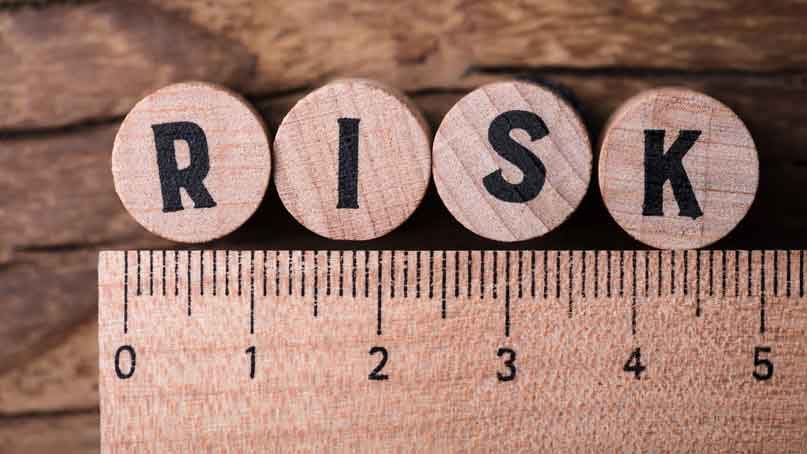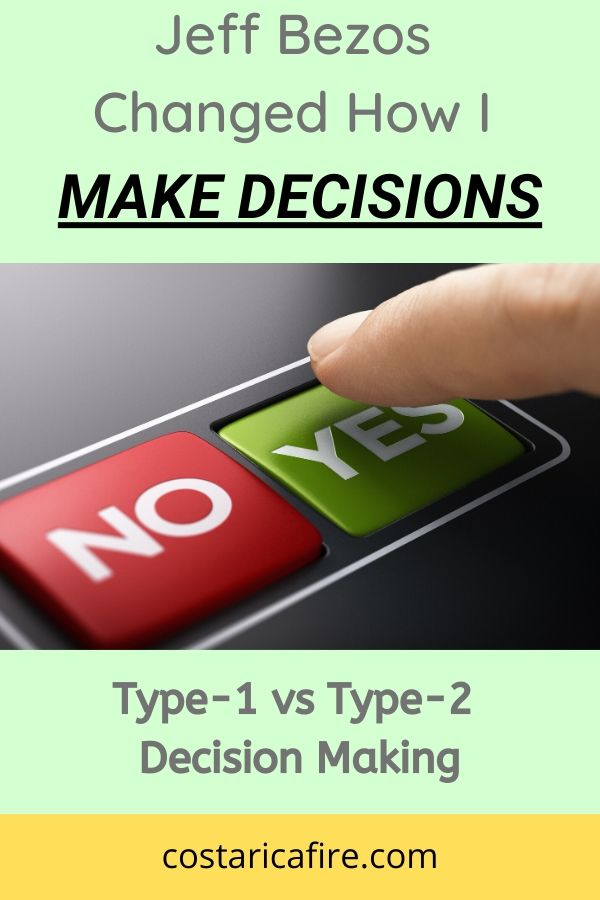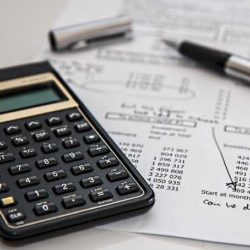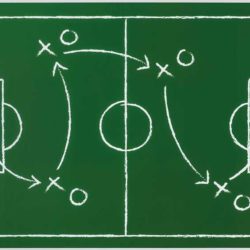If you don’t know about Jeff Bezos’ take on decision-making – specifically what he calls Type 1 v. Type 2 decisions – it is definitely worth checking out. There are good summaries in Inc, Business Insider and Forbes.
To quote Bezos directly from a letter to Amazon shareholders:
Some decisions are consequential and irreversible or nearly irreversible – one-way doors – and these decisions must be made methodically, carefully, slowly, with great deliberation and consultation. If you walk through and don’t like what you see on the other side, you can’t get back to where you were before. We can call these Type 1 decisions. But most decisions aren’t like that – they are changeable, reversible – they’re two-way doors. If you’ve made a suboptimal Type 2 decision, you don’t have to live with the consequences for that long. You can reopen the door and go back through. Type 2 decisions can and should be made quickly by high judgment individuals or small groups.
I love the door analogy. Some doors are one-way, so once you go through, you have no choice but to continue onward (Type 1 decisions). But many doors are two-way, and you can just turn around and go back through if you change your mind (Type 2 decisions).
We also cover this topic in Module 2 Lesson 4 of our free course, Making FIRE Possible. In the course, our insights will help you think differently about your own financial independence possibilities. Check it out today!
Having discovered the Bezos Type 1 / Type 2 decision-making structure, that has become the first question I ask myself when I need to make a decision.
If it’s Type 2 reversible, then I’ll jump in. I do this more with our business since it’s a service (consulting) and has no fixed expenses. I am launching a new offering next week – I decided on this within the last month. It would be easy to pull off the market if It doesn’t work out, and the only thing I lose is the time I spend on it. In the meantime, I’m learning from it, and I’ve already made a little money pre-selling it.
For big investments – e.g., buying real estate, investing in a private loan or business venture – we try to keep our leverage low (if any) and limit the investment to a small enough percentage of our total net worth, so that the decisions stay Type 2 decisions. If you can’t get out of an investment, you just made a Type 1 irreversible decision. But if making the individual investment doesn’t harm your overall portfolio or impact your way of life, then that’s Type 2.
The slowing economy changes some of our calculations

Several of our Type 2 reversible decisions could become Type 1 irreversible depending on how long the pandemic goes on.
Costa Rica real estate: Border closures in Costa Rica have been extended twice – initially it was thru Easter, then end of April, now May 15. What if borders are closed indefinitely? We could still monetize our real estate to local tourists and residents, but the potential changes dramatically, and we also could not enjoy the properties ourselves.
US-based real estate: Each property is a Type 2 decision, in the sense that any one property doesn’t sink the whole. However, if all of our rentals suddenly became vacant or had non-paying tenants, then that is a big hit. Several of our rentals still have mortgages, and if banks were to call these in (rare as ours are conventional 30-year residential), that would be a bigger hit. These scenarios weren’t on the radar until the pandemic and all the Depression talk.
Changing residence: Making Florida our primary residence wasn’t at all a Type 1 decision given that people move all the time. We don’t want to reverse this decision. However, my youngest has three more years of college. Currently she attends private college out-of-state at a significant cost. If school becomes remote long-term, the prospect of paying private, out-of-state tuition without the full on-campus experience because substantially less appealing. Yet our local college in Florida is not well-ranked (#281 in the US News rankings), especially when compared to the local NY colleges we would consider (#23 where our older daughter attended or even #228 which is the most convenient one to our NY apartment).
Managing our portfolio these days is about ensuring we keep our options open
Given the extraordinary market conditions, we need to actively keep our risks at the Type 2 reversible level. This means keeping our options open.
Real estate: This means increasing our reserves and staying liquid – no new real estate purchases for now.
Paper portfolio: Guarding against big losses takes priority over trying for big wins, so we will not be buying into any stock market dips. Our paper portfolio represents our liquidity because for the real estate we own, it’s illiquid in the sense that we can’t assume we can sell it. You probably can sell real estate in any market if you lower the price enough, but with all the Depression talk you really can’t count on having buyers.
College: We tell our daughter to assume that everything will work out, even if next semester is still remote, partial remote, or who knows? We’ll make our decisions semester-by-semester. So far, that answer works.
Being risk-averse, I probably need to make more Type 1 decisions, but not right now

Holding back has its own problems. I can think of several deals which would have been good buys – for example, an apartment in Manhattan that we didn’t pursue because it would tether me to a career I wanted to leave (that one apartment alone would have returned 7-figures). In general, I probably need to make more Type 1 decisions, but not right now.
We have a couple of investments we’re holding off on because it would mean less liquidity. Doing anything that decreases liquidity seems closer to a Type 1 decision than Type 2 in today’s volatile economy. If we go into a Depression and it lasts just a little longer than expected, reserves can be used up, and additional money can be impossible to come by. You only can get credit when you don’t need it!
A decrease in liquidity, which might be a bearable risk in a regular market or even just a recession, could suddenly become the domino that knocks everything else down. Making any big investments right now feels like a Type 1 decision. But maybe that’s my risk aversion kicking in again.
=============
What do you think? Are you buying, selling, or holding?



 We are Scott and Caroline, 50-somethings who spent the first 20+ years of our adult lives in New York City, working traditional careers and raising 2 kids. We left full-time work in our mid-40’s for location-independent, part-time consulting projects and real estate investing, in order to create a more flexible and travel-centric lifestyle.
We are Scott and Caroline, 50-somethings who spent the first 20+ years of our adult lives in New York City, working traditional careers and raising 2 kids. We left full-time work in our mid-40’s for location-independent, part-time consulting projects and real estate investing, in order to create a more flexible and travel-centric lifestyle.  Financial independence and early retirement is not something we originally focused on, but over time realized it was possible. Our free report,
Financial independence and early retirement is not something we originally focused on, but over time realized it was possible. Our free report, 








Thanks for sharing your thoughts. I really like the door analogy, will definitely start implementing more in my decision making.
I’m currently significantly increasing exposure to the stock market. It could dip MUCH lower but I’m DCAing my way in. Definitely a type 2 decision as I still have nice emergency fund on the side.
I guess as real estate investors you guys have a lot more type 1 decision crossroads. Crossing my fingers everything will be back to normal soon.
Cheers and stay safe!
We’re not increasing our stock exposure, whether DCA or otherwise. I see a lot of volatility in the horizon. So we’ll just have to go on the ride vicariously thru you and others buying on the dip! Real estate could prove to be Type 1 if all of it goes illiquid. I don’t think it will, but I didn’t predict the pandemic either.
I’ve read all the prognostications about a Depression, but I also remember that we have more tools at our disposal (at the Federal level) to combat a full fledged Depression like what happened way back then. So I’m cautious but more optimistic that this pandemic will not alter our economy in the same fashion.
I’m conservatively buying dips and DCA-ing my investments. I was too heavy in cash and bonds anyway so this is as much of a rebalancing effort as it is market timing. What I haven’t done yet is to pull the trigger on my part time job. It seems prudent to hang onto this income source for a while longer, or until management decides we’re expendable again.
Good points. While I think our government has more tools than in the 1920’s, I also think it’s a completely different market — much more globally interconnected, we have already run up a lot of debt and done a lot of unnatural interventions with interest rates and money printing. I think it depends on your timeline. We’re late 40’s so our focus is more on risk than when we were in our 20’s or even 30’s. Even if the stock market recovers, inflation can eat up a lot of those gains. Daniel Ammerman has some great posts about this phenomenon.